UN Sustainable Development Goals
The United Nations Sustainable Development Goals (SDGs), adopted by all United Nations member states in 2015, provide a global framework for governments, businesses and society to respond to economic, social and environmental challenges by 2030.
At Cenovus, we recognize that businesses have a role to play in providing solutions that can contribute to solving these challenges. We took a closer look at the SDGs to better understand how our activities corporate wide and specifically in relation to our five environmental, social and governance (ESG) focus areas are contributing positively to the SDGs. We will continue to evaluate our role in contributing to this global agenda and how we can further incorporate the SDGs into our business activities over time.
-
5 Gender equality
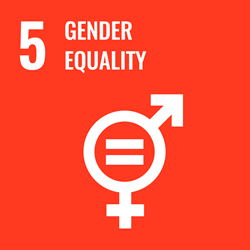
Cenovus Related targets:
Increase women in leadership roles to 30% by year-end 2030.
Aspire to have at least 40% representation from designated groups among non-management directors, including at least 30% women, by year-end 2025.
Our actions:
- Ensuring diverse representation in student and new grad pool by partnering with universities and colleges, and providing scholarships to students working towards education that can support the energy industry.
- Our inclusion & diversity networks are intended to foster a diverse and inclusive workplace and are open to all staff at Cenovus. These networks are voluntary, employee-led, executive-sponsored groups that focus on specific demographics within our company, and aim to:
- Increase awareness around key topics, trends and issues related to the network.
- Influence Cenovus’s practices and programs to enhance the experience of all staff.
- Provide peer support for staff.
-
6 Clean water and sanitation
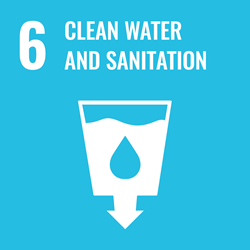
Cenovus related targets:
Reduce fresh water intensity by 20% in oil sands and in thermal operations by year-end 2030.
Our actions:
- To support our water intensity target and water stewardship performance, we’re developing water management plans for all operated assets by year-end 2025. Water management plans improve the way we source, transport, store, reuse and dispose of water. The plans, along with water expertise embedded throughout our business, identify and mitigate risks to freshwater quantity and quality in the planning, operating and late-life stages of our operations.
- Recycle water at our oil sands operations and the Lima Refinery and, where possible, in hydraulic fracturing, enhanced oil recovery and waterflood operations. At our Sunrise oil sands facility, we reuse wastewater from a neighbouring oil sands mine for our operations.
- Treat process water released back to the environment at our offshore and refining operations to meet stringent water quality requirements.
- Invest in research to improve our water use efficiency. Where we withdraw fresh water for operations, we meet strict regulations to manage water quantity for all users. We monitor water availability risk in the areas where we operate and ensure our withdrawals are locally sustainable.
- Support collaborative water management, participating in watershed advisory councils and in regional water monitoring initiatives for our in situ oil sands operations. We take part in multioperator water sharing agreements.
-
7 Affordable and clean energy
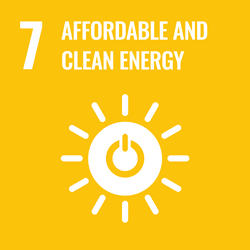
Cenovus related targets:
Reduce absolute GHG emissions by 35% by year‑end 2035.
Reach long-term ambition for net zero emissions by 2050.
Our actions:
- We have established targets and plans to achieve them to position us to thrive in a lower-carbon future and continue to provide energy the world needs to make people’s lives better.
- In addition to participating in several other collaborations and partnerships that advance clean energy innovation, we jointly founded the Oil Sands Pathways to Net Zero initiative with our largest oil sands peers. Working collectively with governments and innovators, Pathways has a vision to achieve net zero greenhouse gas emissions from oil sands operations by 2050.
-
10 Reduced inequalities
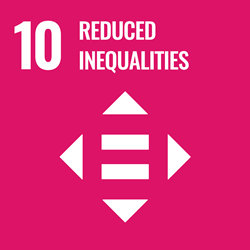
Cenovus related targets:
Achieve a minimum of $1.2 billion of spending with Indigenous businesses between 2019 and year‑end 2025.
Attain Progressive Aboriginal Relations gold certification from the Canadian Council for Aboriginal Business by year-end 2025.
Our actions:
- Strive to reduce barriers for Indigenous companies and communities and focus on providing more opportunities for social and economic inclusion.
- Partner with Indspire, an Indigenous national charity that invests in the education of First Nations, Inuit, and Métis people. Our partnership will support initiatives across Canada aimed at enhancing education and recognizing the outstanding achievements of Indigenous people.
- After listening to Indigenous communities about their concerns and priorities, we created our Indigenous Housing Initiative, the largest community investment in Cenovus’s history. This program helps address one of the most pressing issues facing Indigenous communities in Canada – inadequate housing that forces many families to live in overcrowded and sometimes unsafe conditions.
-
15 Life on land
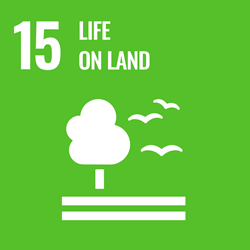
Cenovus related targets:
Reclaim 3,000 decommissioned well sites by year‑end 2025.
Restore more habitat than we use in the Cold Lake caribou range by year-end 2030.
Our actions:
- Commit to planting millions of native trees through our tree planting program.
- Conduct our reclamation and restoration activities efficiently, advancing the reclamation and subsequent restoration of functional terrain and soil system and ecosystem processes. The restoration of larger geographical areas resulting from our area based closure approach can also increase habitat connectivity.
- Support a cross section of programs and initiatives that promote biodiversity conservation, including Alberta Ecotrust, Nature Conservancy of Canada (NCC), Alberta Conservation Association, Ottawa River Coalition, among others.
- Partner with the NCC on conservation efforts in Newfoundland and Labrador through the Futures in Conservation program, training the next generation of environmental leaders. Interns with the program are responsible for monitoring and surveying nature reserves through mapping and reporting tasks, helping organize biological inventories that create knowledge or local biodiversity on the lands they are working to conserve
Read our environmental, social & governance (ESG) report to learn more about our ESG targets and performance.
Learn more about how we’re working with other industries, scientists and entrepreneurs to find innovative solutions to our impacts on air, land and water.
We're committed to supporting communities close to our operations that are impacted by our work. Learn more about our focus areas for social investment.
